Gardening update: Bounties in the midst of austerity
Being a Nigerian living in Nigeria is probably one of the most difficult things any human can be right now. I mean, I could be wrong, but a country where prices of goods and services suddenly multiply 3 folds within a couple of weeks has to be one of the most difficult countries to be in, especially if one doesn't have means of earning in the United State dollars.
What really happened? Government's subsidies on petrol were removed overnight, and for a country whose economy largely depends on petrol, the ripple effects touched even the ants that live in Nigeria. To worsen things, the Naira was simultaneously floated (instead of being pegged), resulting in a significant loss of value against foreign currencies. For a country that depends largely on importation, now you know why we are paying through our various noses for goods and services.
The good news though, for those of us that love farming, is that the rainy season has been around for some months now and crops are starting to bear fruits. Early maize planters have harvester while some are still harvesting, new yam is now in the market, pepper and tomatoes are no longer a thing of scarcity, and even though prices are far higher than what they should be in this period, it is still a bit of relief to see that our soils still bring out bounties.
The small garden in my backyard is not left out of all the bounties. Due to the fact that most of the space is occupied by plain plants, I have a rather small space to utilize for gardening activities this year. A couple of months into the rainy season, I was able to plant vegetables such as okra and jute mallow along with sweet potatoes.
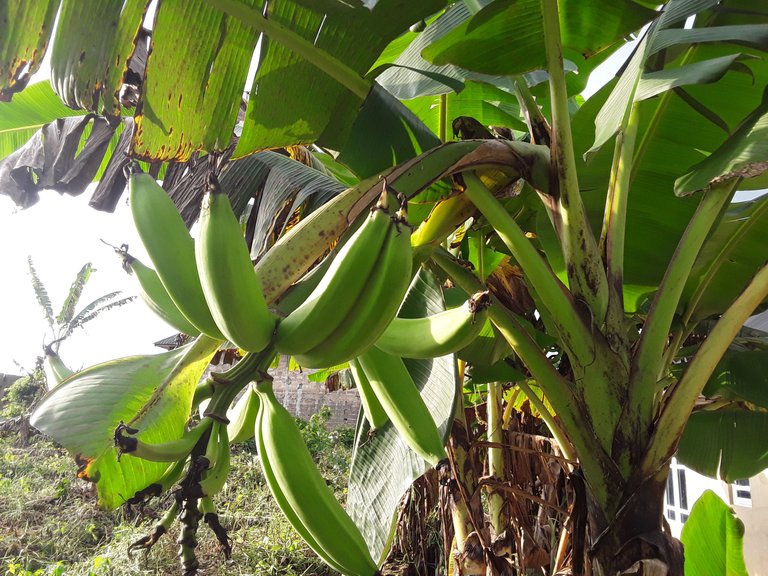
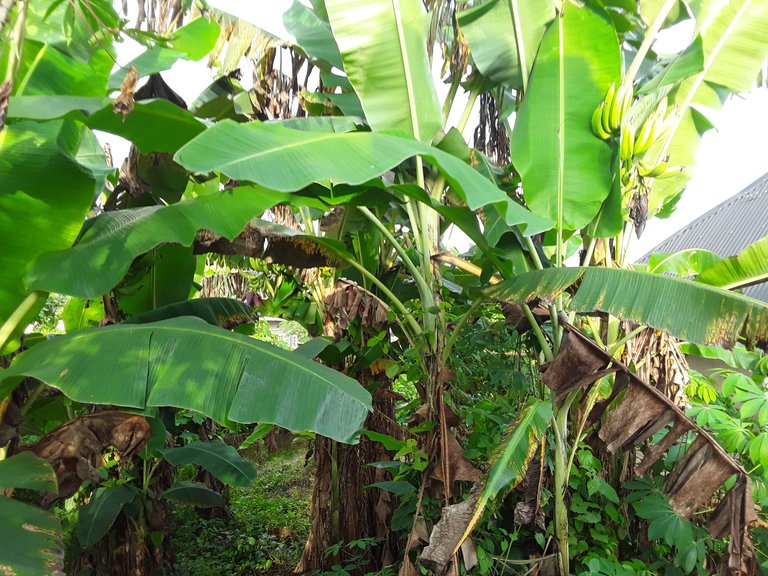
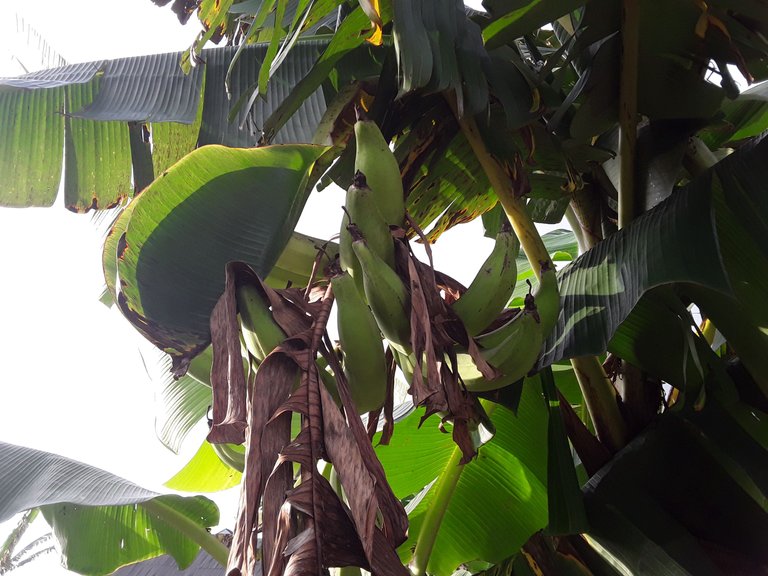
Above is my mini plantain plantation, of which most plants are currently fruiting with a few due for harvest in a couple of weeks. The harvest will not only bring succor to me in terms of finances (I know how much it will cost to get them from the market) but will also bring a lot of excitement to my kids as a staunch lover of plantain-boiled or fried. When overwhelmed with plantain bounties, just like last year, I will convert some to plantain flour and utilize it in the making of a local dish known as amala.
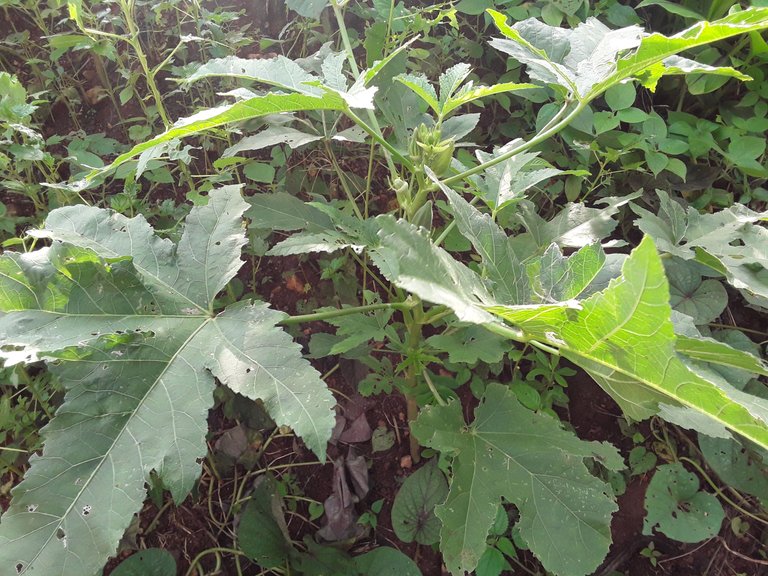
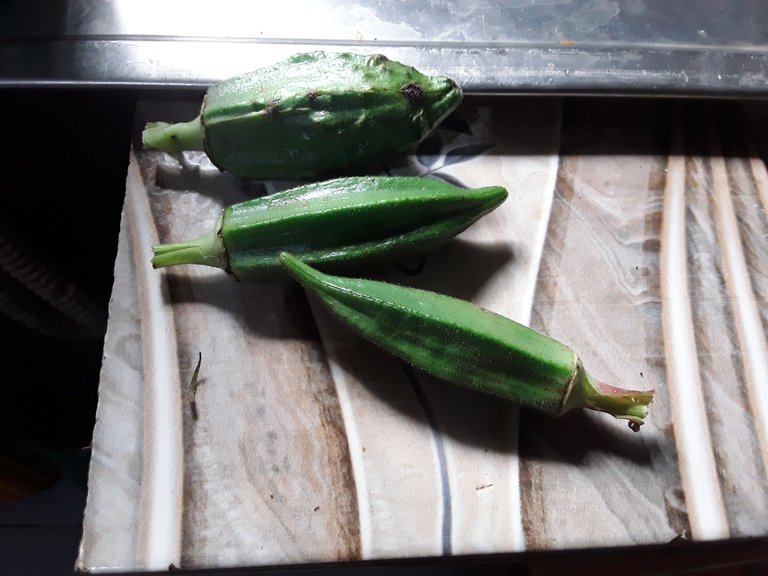
The two images above depict another of the crops I planted this season - okra. Even though I was only able to manage a few stands due to space, they did very well and as you can see in the second image, harvesting has already started - and they are good. The three fruits were harvested from a single plant stand. Okra fruits are useful in the making of okra soups. This means that I will be having fewer worries about the funds for making soup for some time as long as my okra plants are still fruiting.
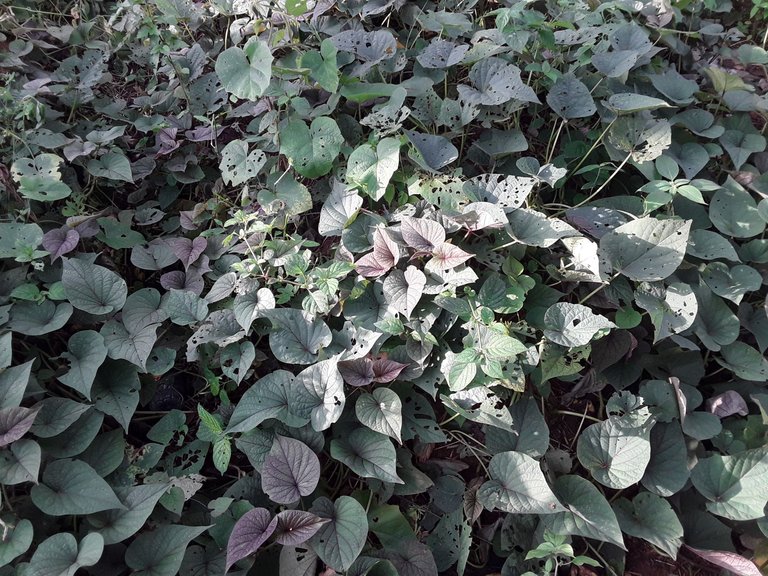
And the image above shows the vegetative state of the sweet potato I planted. According to research reports and from the experience gathered during last year's gardening, potato plants only require about 3 months before they are due for harvesting. The implication is that I've got just a couple of weeks left before adding tubers of potatoes to my gardening bounties.
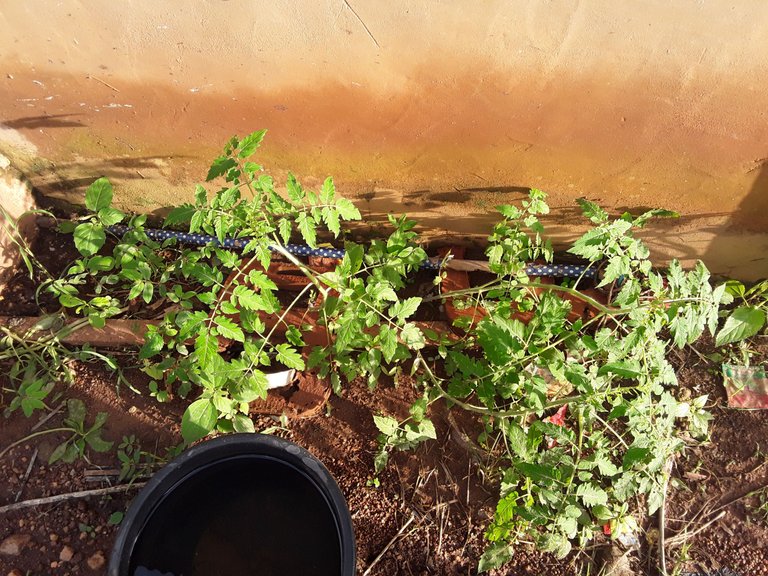
Aren't we truly blessed as a nation? Above is the image of tomato plants. What makes this particular image interesting is that the tomatoes were not deliberately planted. So how did they come about? Whenever we are cooking, we usually throw the water used to wash tomato fruits in that area. Some of the seeds in this water must have been the ones that sprouted and gave rise to the tomato plants seen in the image above. So, I will also be reaping tomatoes in the coming months.
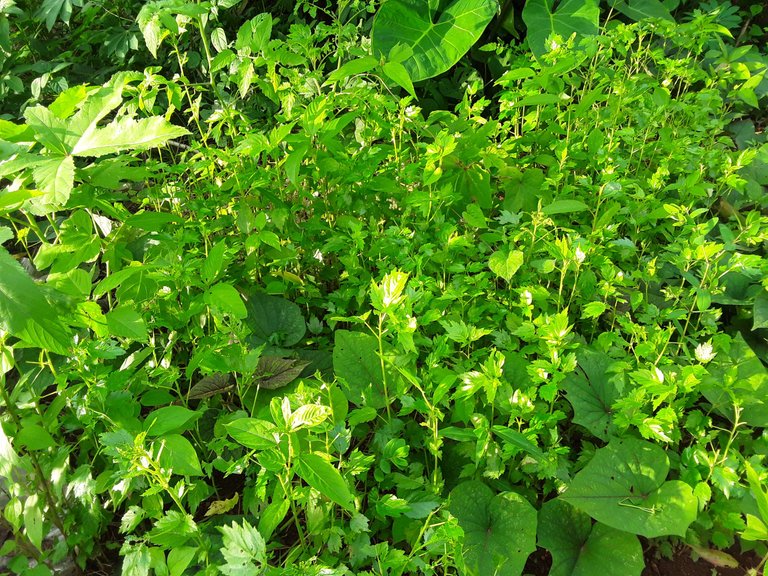
Last but not least in the image above is that of jute mallow, locally known as 'ewedu' in Yoruba language. Even though a cocoyam can be seen in the background, it wasn't planted deliberately but as an offshoot of previous farming activities on the land. The jute
mallow serves an important purpose in the making of a draw soup, otherwise known as ewedu soup. This soup can be used in place of okra soup. The implication is that, sometimes we can choose to go with okra soup, and ewedu soup at other times. Ordinarily, these are farm produce we spend money on weekly, twice a week, or even more.
While the whole of Nigeria is groaning under the effects of the falling Naira and subsidy removal, good times are here for those that are into gardening and farming activities.
Thanks for your contribution to the STEMsocial community. Feel free to join us on discord to get to know the rest of us!
Please consider delegating to the @stemsocial account (85% of the curation rewards are returned).
You may also include @stemsocial as a beneficiary of the rewards of this post to get a stronger support.
Combining plantain with soup is very good. Here in my country, the Philippines, we also use plantain as a vegetable in some of our fish soup dishes. With the addition of plantain, the soup will be more delicious and tasty.
whatever happens everyone remains grateful. keep the spirit, healthy family. and hopefully the banana tree will bear more fruit.
Even in our country inflation of commodities is present. It's good to plant at home to save money and eat healthy fruits and vegetables.
I'm sorry that Nigeria is suffering an economic problem - seems like this is true in most parts of the world, and gardening is more important than ever.
Don't you love a self seeded plant - it's free food!
Sprouting of green leaves especially after raining is one of the great bounties from the Creator of the universe, however, we aren't making maximum use of it! I am happy that you are exploring the gift of nature to the fullest. I hope I am able to follow suit soonest.